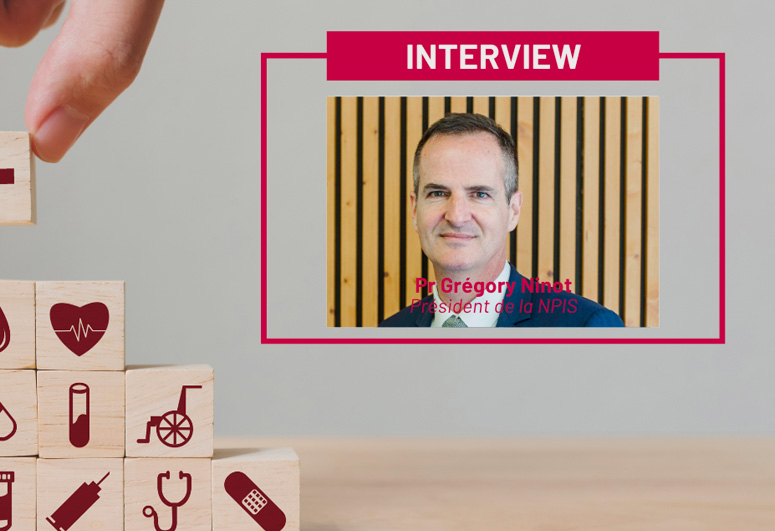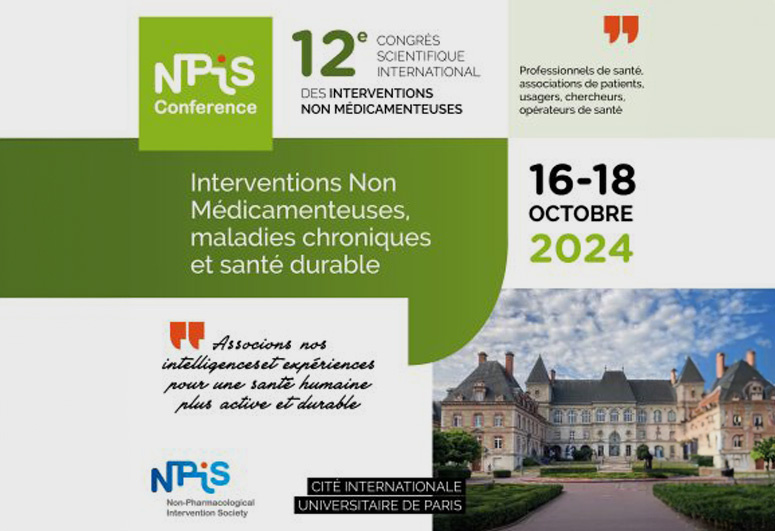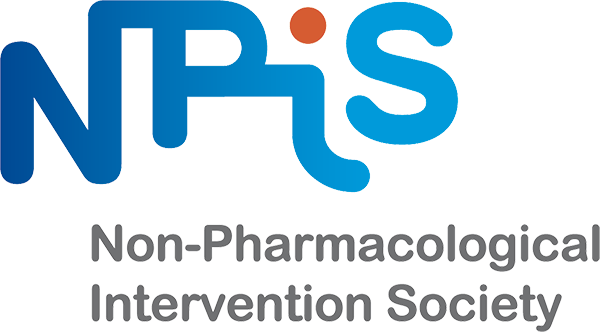15/10/2023
In an era of misinformation and misunderstandings, there was a need to provide clarifications on non-pharmacological interventions.

The international scientific society Non-Pharmacological Intervention Society (NPIS) presents, during its global summit organized in Paris and online from October 16 to 18, its framework for non-pharmacological interventions (NPI) and the initial protocols. Professor Grégory Ninot, president of NPIS, discusses a participatory scientific approach aimed at facilitating access to NPIs and changing the game in prevention and care.
Interview by Renaud Degas with Géraldine Bouton.
What is a non-pharmacological intervention (NPI)?
Grégory Ninot: It is an immaterial protocol for care or prevention aimed at treating a health disorder identified by conventional medicine. The NPI is not a recipe to apply but rather a protocol to personalize based on the health context, supervised by a qualified professional. It is neither a medical device, a medication, nor a surgical procedure. However, the NPI can complement them.
Today, there are numerous NPIs that have not been cataloged or integrated into the training of healthcare professionals. The challenge is to continuously improve practices and, above all, to make them known to a wider audience, including decision-makers.
A framework for NPIs will be presented this week at your global summit from October 16 to 18 in Paris. How did you develop it?
G.N.: We have been working since 2011, following the renowned report by the Haute Autorité de Santé on the subject. We needed to create a consensual evaluation framework and then submit it to health authorities, scientific societies, etc. This framework will allow for sharing labeled NPI protocols with users and healthcare professionals. This clarification work, based on a rigorous and integral scientific approach, will enable funders such as Health Insurance, the social security for farmers, complementary health insurers, or any other social actors to determine the conditions for their coverage.
At the same time, the online framework for NPIs has been created to collect feedback from users and healthcare professionals. It will improve and secure practices, as well as share knowledge and enhance training. The multilingual framework, intended for international use, will be officially launched on October 16.
What will be available on this platform?
G.N.: At launch, ten NPIs will be available for care during breast cancer treatments and for preventing the risk of falls and cognitive disorders in the elderly, at the request of Health Insurance and the National Solidarity Fund for Autonomy. The ambition is for this library to cover all health issues according to a rigorous expert process in line with general public health recommendations and international recommendations from health scientific societies. A search engine will allow queries by health issue.
The framework presents a list of validated NPIs in three areas: the first concerns the body, including protocols for physiotherapy, occupational therapy, and adapted physical activities. The second area involves psychosocial interventions, with protocols for therapeutic education, health prevention programs, and psychotherapies, for example. Finally, the third area addresses nutritional programs with dietary solutions specific to identified health issues.
This database lists immaterial and universal protocols for prevention, care, and assistance for autonomy that can be proposed by professionals and tracked via a unique code. This code will facilitate the integration of NPIs into professional software, their identification by AI systems, and their administration in patient pathway monitoring platforms.
Platform, framework… How can all this work contribute to the recognition of NPIs?
G.N.: In an era of misinformation and misunderstandings, there was a need to clarify NPIs so that they are no longer confused with alternative medicines, socio-cultural activities, or general public health recommendations like “move more” or “eat less fat, salt, or sugar.”
Moreover, Health Insurance, regional health agencies, complementary health insurers, local authorities, foundations, and patient associations sometimes fund programs blindly without knowing the actual benefits or risks of these practices. Our work will enable them to rely on concrete feedback and improve the effectiveness of certain care options.
Collecting usage data to feed research and improve practice seems to us, alongside NPIS Vice President Michel Noguès, a virtuous circle. Professionals will be better recognized. For patients, it guarantees a scientifically demonstrated benefit and, in the future, better reimbursement.
After your international summit, what will be the next major steps for NPIS?
G.N.: There is a challenge in mobilizing researchers and practitioners familiar with NPIs to submit them for enriching the framework. We estimate that there could be about 10,000 NPIs to integrate, whether for care or prevention.
The second challenge is partnerships. NPIS must establish strong, lasting relationships with all stakeholders, especially health authorities, scientific societies, professional organizations, and patient associations. The expertise we offer must be co-constructed and continuously monitored. We need human and financial resources, particularly to accelerate the completion and updating of the framework.
The third challenge is the development of this French innovation in Europe and internationally. A forum supported by INSERM will be held in Brussels on December 5 to discuss issues of scientific, regulatory, economic, and technical harmonization. The NPIS Summit will report on progress annually. We will meet again in Paris in October 2025 and 2026. Together, we are consolidating a universal heritage of prevention, care, and autonomy assistance solutions based on science.
Other articles that might interest you




